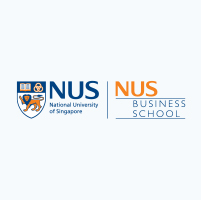In some developing countries, reading at night is hard. Without access to electricity, villagers turn to kerosene lamps as their source of light. However, kerosene fumes are bad for their health, and also pose as a potential fire hazard.
The problem sees the light of day when social entrepreneurs invented a small portable lamp with a solar panel that could absorb sunlight during the day and convert the energy into light energy during the night. What’s more, it is sturdy and can withstand falls. This invention targeted at developing cities also found a market in the developed world as camping lights.
Such is a creative solution needed for many of the world’s problems.
Holding up the lamp, NUS Business School’s Associate Professor Audrey Chia was speaking to an auditorium of tertiary students at The Straits Times-UBS Youth Finance Forum in September. NUS Business School was a supporting partner of the event.
In her segment, Assoc Prof Chia spoke about business with a purpose and social innovation, alongside with Mr Kelvin Tay, UBS’ Regional Chief Investment Officer for UBS Global Wealth Management, who spoke about macro trends shaping the economy. Ms Lee Su Shyan, Associate Editor at The Straits Times, moderated the Q&A session.
“Social entrepreneurship is a practice that can be used by individuals, private companies, and the public sector,” said Assoc Prof Chia, who is from the Department of Management & Organisation and has a joint appointment at NUS Yong Loo Lin School of Medicine.
The practices of social entrepreneurship include putting social purpose first, applying entrepreneurial approaches, innovating across disciplines and partnering others, including the beneficiaries.
Sometimes, ideas can come from unlikely places. Assoc Prof Chia raised the example of McDonald’s, which provided similar fast food across its chains. Such a model could be applied to set up an eye care system that is fast and provides standard service in villages that do not have much resources for eye care. The Aravind Eye Care System in India was born, with outcomes on par with developed countries. It also started Aurolab which manufactures materials like intraocular lenses and surgical blades to keep the same quality at cheaper costs.
Social entrepreneurship can also arise within businesses, instead of carving out a separate entity. Salesforce started supporting social ventures by giving out 10 free licenses of its software. Later, it created its own social venture SalesForce Foundation. Eventually, it launched funds to invest in start-ups that create social impact.
In closing, Assoc Prof Chia urged students to think like a social entrepreneur—to question assumptions, to dig for data, to engage the community and to recognise the power of values and purpose.
The future finance executives would have to employ new ways of thinking in bringing the best for businesses and society.
Read more about the ST-UBS Youth Finance Forum.




